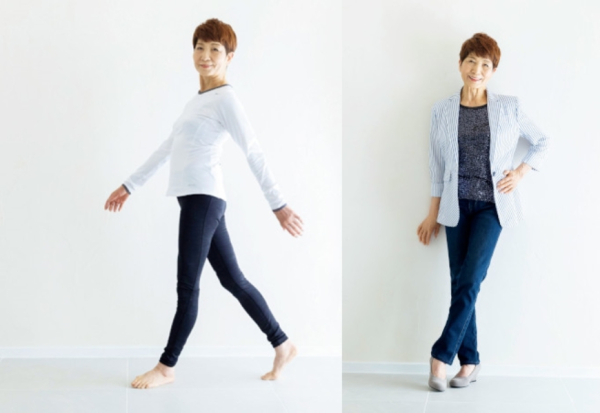You don’t have to spend a lot of money when pursuing healthy and long-term poverty! 5 scientific long-term principles that can make you elegant and old

People eventually pursue long-term poverty throughout their lives, and people now pursue healthy long-term poverty. According to research, the lifestyle you choose, especially diet and exercise, determines whether you can grow healthy or not. Foreign media "Healthline" interviewed experts and proposed five scientifically based long-term methods, which are mostly common principles. If you want to live longer, you have to spend a lot of money on health care products and pursue secret recipes for anti-aging; if you sincerely implement the following methods to cultivate habits, I believe that you and I can grow old more elegantly.
5 scientifically based long-term methods1. Adopt Mediterranean diet/Oxygen dietAs long as you talk about diets that extend life and prevent disease, scientists will unanimously recommend Mediterranean diet and Japanese Oxygen diet. The two diet patterns are somewhat similar, using fish rich in brain-healthy and heart-healthy fats as the main source of protein, including a large number of fresh vegetables and limiting heavily processed foods and sugars.
[Mediterranean Dining Features]. A large amount of vegetables, fruits, beans, lentils and fruits.
. Many whole grains, such as whole wheat bread and brown rice.
. A large amount of special virgin olive oil (EVOO) is a source of healthy fats.
. Suitable amount of fish, especially fish rich in omega-3 fatty acids.
. Cheese and fine quality.
. Little or no meat to eat, choose poultry instead of red meat.
. Few or no sweets, sugary drinks or oils.
. Drink wine appropriately during meals (but don't start if you're not drinking).
【Oxygen Diet Special】. Low calorie intake
. Take a large amount of vegetables: especially roots and green vegetables
. Take a large amount of beans: most of them are from soybeans
. Suitable fish types
. Eat less meat products: Most eat pork with less fat
. Eat less dairy products
. Less oil and fat extraction: the proportion of single-cell and polydigestible and fatty acids is higher; because it is more commonly eaten seafood, Omega-3 extraction is more than Omega-6
. Carbohydrate extraction is mainly low GI: mostly from sweet potatoes
. The dietary fiber intake is large
. Appropriate drink
2. Weight lossAccording to data from the World Health Organization WHO, WHO, overweight and obesity are the main risk factors for many chronic diseases, including cardiovascular diseases such as cardiovascular diseases and medium wind, which are the main causes of death in the global population. Excessive weight can also lead to diabetes and its related diseases, including the need for blindness, amputation and dialysis. Overweight can also lead to musculoskeletal diseases, including osteopathic inflammation.
Obia is also related to some cancers, including endometrial cancer, breast cancer, ovarian cancer, prostate cancer, liver cancer, cyst cancer, kidney cancer and kidney cancer.
3. Reduce long-term sittingLong-term sitting is considered to be a behavior of "chronic self-killing", which may cause many health injuries, and may be affected in all parts of the body. Sitting for a long time every day may bring risks of obesity, cardiovascular disease, diabetes, cancer, constipation, hemorrhoids, shoulder tract, stiff muscles and tendons, muscle loss, static embolism, dementia and other diseases.
WHO recommends that adults have at least 150 minutes of moderate intensity aerobic exercise every week, which proves that it can effectively reduce the risk of chronic diseases.
Even if you are often flirting, your sedentary behavior can bring serious health risks. So don't just think about trying to offset the days of laziness through hard workouts. Think about ways to increase your full-day physical activity, even if it means walking around the house or office, even if you still have regular exercises.
4. Regular movementIf you want to be healthy, you must move! Research published by the Yangming University and the Taipei General Research Team found that exercise and burping belly can promote the increase of CISD2. It is recommended to exercise and eat 70% of the food every day. Lin Yingzhou, director of the Center for Physical Suitability of Changgeng Hospital, also visited and pointed out that sports can make the body more young.
Sports can be healthy and easy to say, but it is difficult for many people to do. Lin Yingzhou suggested that people who are not in sports habits can start from walking and stretching to accumulate physical energy and muscle strength, and slowly cultivate sports habits.
The National Health Administration also recommends cultivating sports habits through "going" to achieve success. Walking can stimulate the body's skeletal muscles and neural systems. It is a medium-strength movement recommended by the world's health organizations and has the most CP value. By increasing the pace, stride and speed of walking, it is recommended that the speed is at least 4.83 kilometers, and at least 90 steps per minute. Walking 10 minutes a day or walking 70 to 90 minutes a week can reduce the risk of premature death by 15%, improve physical fitness, improve mood, and maintain a healthy body; if the body activity time is extended to 30 minutes a day, and the accumulated 150 minutes a week, it can have great benefits to health.
5. SmokingBritish research has found that smokers have a life of 10 years shorter than those who do not smoke. Smoking is linked to many diseases such as cancer, cardiovascular disease, diabetes and chronic obstructive pulmonary disease.
Li Juntai, the educator of the National Institute of Defense Medical and Director of the Taiwan Bronze Stylist, once visited and pointed out that the nicotine, carbon monoxide and tar in the smoke will affect the oxygen supply, cause blood vessel contraction, and thus seriously affect the brain neurons. Therefore, patients with brain wind, dementia and Bakinson's disease in neurology should be far away from the smoke.. Many international studies have also found that smoking is a risk factor for ischemic brain wind and sub-network hemorrhage. Among male patients with ischemic brain wind, the prevalence rate of smoking is as high as 57.7%; especially for patients with medium-sport diseases, there is a high chance of re-intermediation. If you can quit smoking, it will reduce the re-intermediation risk by 30%.
Reference information. "healthline"
. World Health Organization WHO
. Joint Report Database















